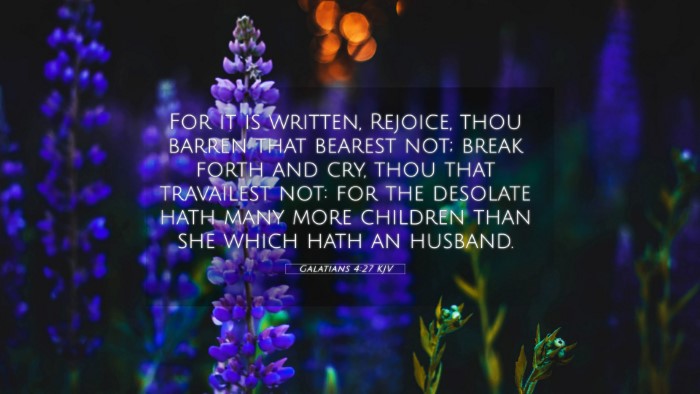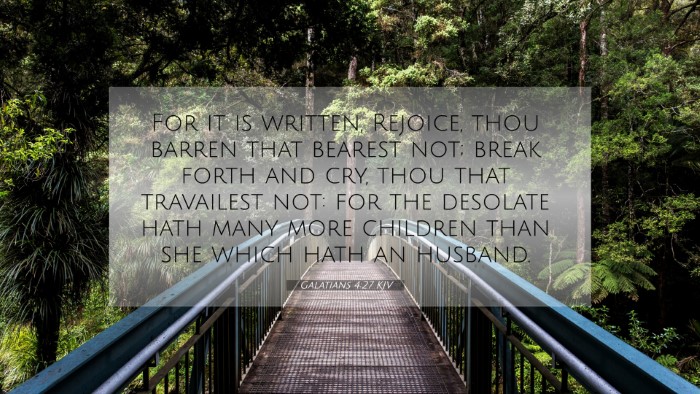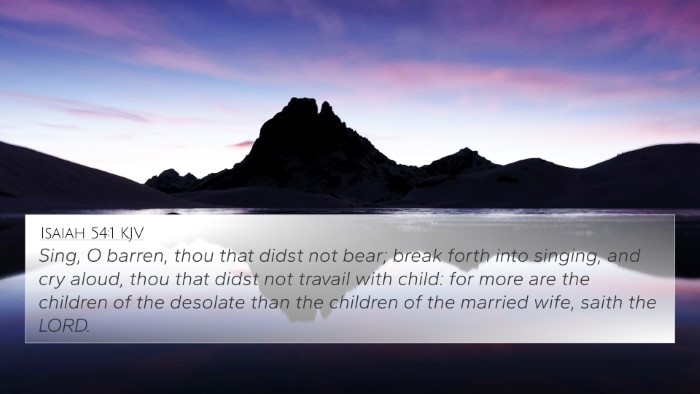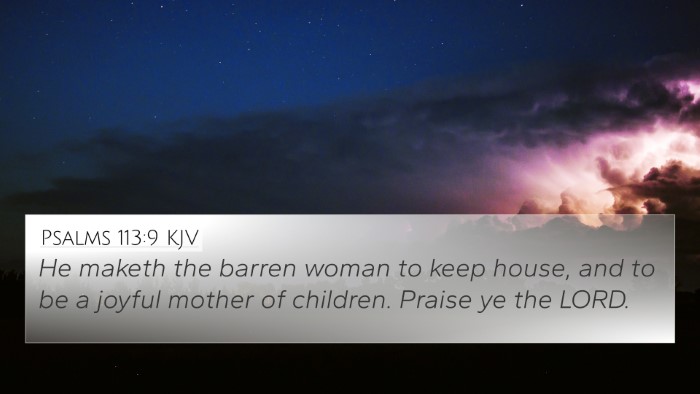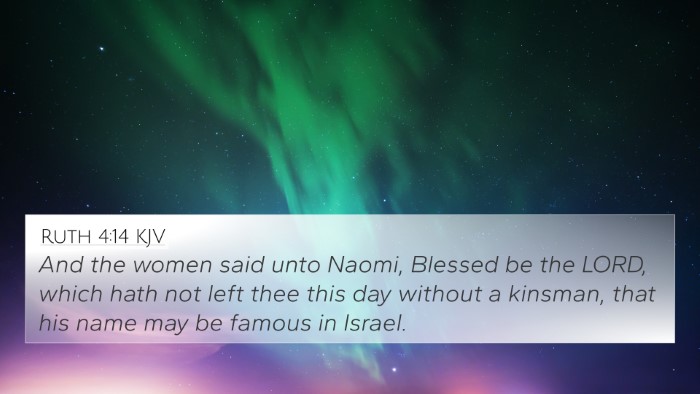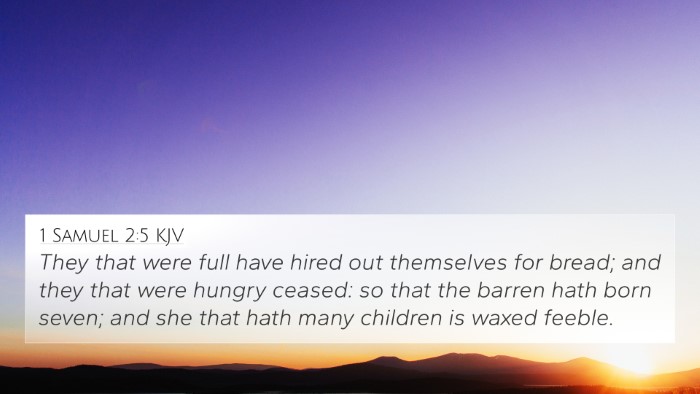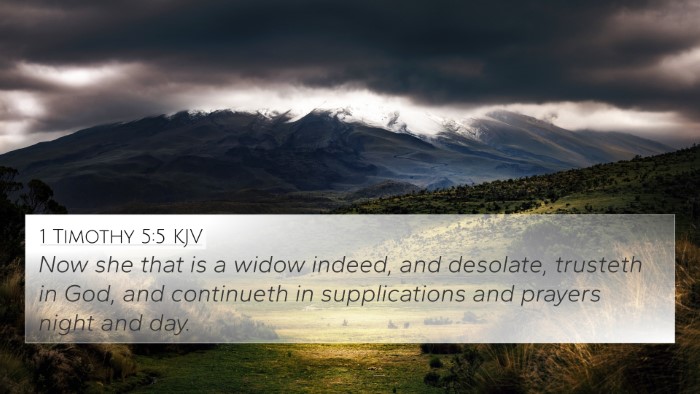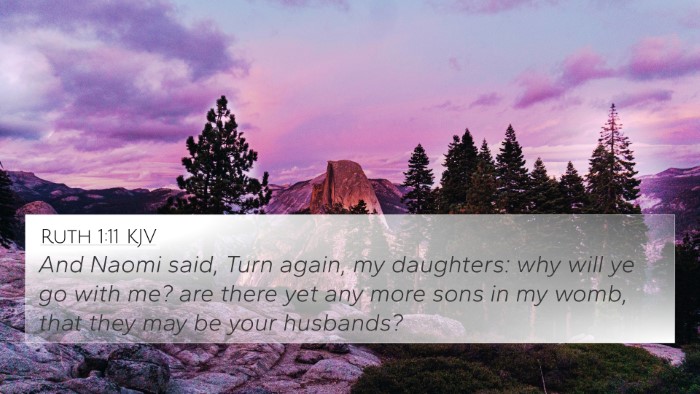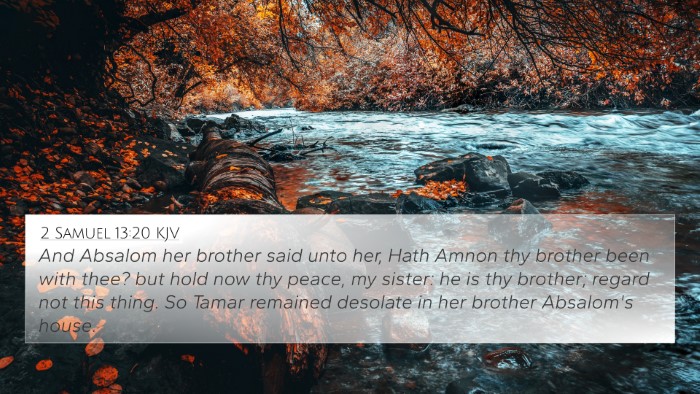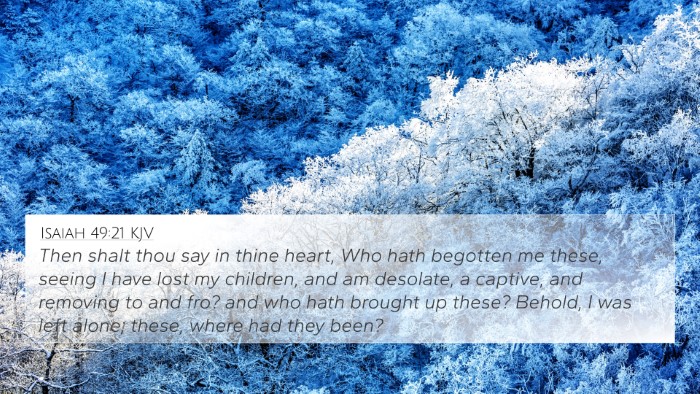Understanding Galatians 4:27
Galatians 4:27 reads:
"For it is written, Rejoice, thou barren that bearest not; break forth and cry, thou that travailest not: for the desolate hath many more children than she which hath a husband."
Summary of Meaning
This verse draws on Old Testament imagery, specifically from Isaiah 54:1, to express a profound theological truth. The Apostle Paul uses the metaphor of barrenness to illustrate the transition from the Old Covenant to the New Covenant. He emphasizes the liberation and abundance found in faith in Christ.
Commentary Insights
Through the eyes of different commentaries, we find a rich understanding of this verse:
-
Matthew Henry:
Henry emphasizes the transformative power of faith, highlighting that true spiritual fruitfulness comes not through physical lineage but through the grace dispensed by God. The "barren" woman symbolizes those who might be seen as unblessed or abandoned but who, because of their faith, will experience great joy and growth in their spiritual lives.
-
Albert Barnes:
Barnes notes the context in which Paul uses this quote – as an encouragement to the Gentile believers. He articulates that the desolate will have more children symbolically representing the Church and the abundance of believers compared to the Jewish nation that relied on the law. Barnes connects this to the Christian belief that freedom in Christ yields a greater spiritual progeny.
-
Adam Clarke:
Clarke comments on the paradox of barrenness and fruitfulness, encouraging believers that, despite their past or circumstances, there is a divine promise of spiritual multiplication. He notes that the verse serves as hope for Christian converts who might feel inadequate or without divine favor.
Cross-References for Deeper Understanding
To explore this verse further, consider the following connections between Bible verses:
- Isaiah 54:1: "Sing, O barren, thou that didst not bear; break forth into singing, and cry aloud, thou that didst not travail with child..."
- 1 Peter 2:10: "Which in time past were not a people, but are now the people of God..."
- Romans 9:25-26: "As he saith also in Osee, I will call them my people, which were not my people..."
- Galatians 3:29: "And if ye be Christ's, then are ye Abraham's seed, and heirs according to the promise."
- Hebrews 11:11: "Through faith also Sara herself received strength to conceive seed..."
- Luke 1:53: "He hath filled the hungry with good things; and the rich he hath sent empty away."
- Matthew 5:5: "Blessed are the meek: for they shall inherit the earth."
Thematic Connections
This verse connects to broader themes within Scripture, emphasizing:
- Faith and Promise: The promise of God to work through those seen as powerless.
- Grace over Law: The shift from the Old Covenant reliance on physical lineage to spiritual rebirth through faith.
- Spiritual Family: The metaphor of familial relationships extends beyond bloodlines to include all believers in Christ.
Conclusion
In sum, Galatians 4:27 serves as a powerful reminder that spiritual fruitfulness is not bound by earthly conditions or statuses. The message of rejoicing in what seems desolate points toward the abundance found in a life anchored in Christ.
Tools for Further Exploration
For those looking to delve deeper into the connections and meanings found in this verse and others, consider using:
- Bible concordance to locate themes and cross-references.
- Cross-reference guides for enhanced study patterns.
- Comprehensive Bible reference resources to understand the interplay of different scriptures.

